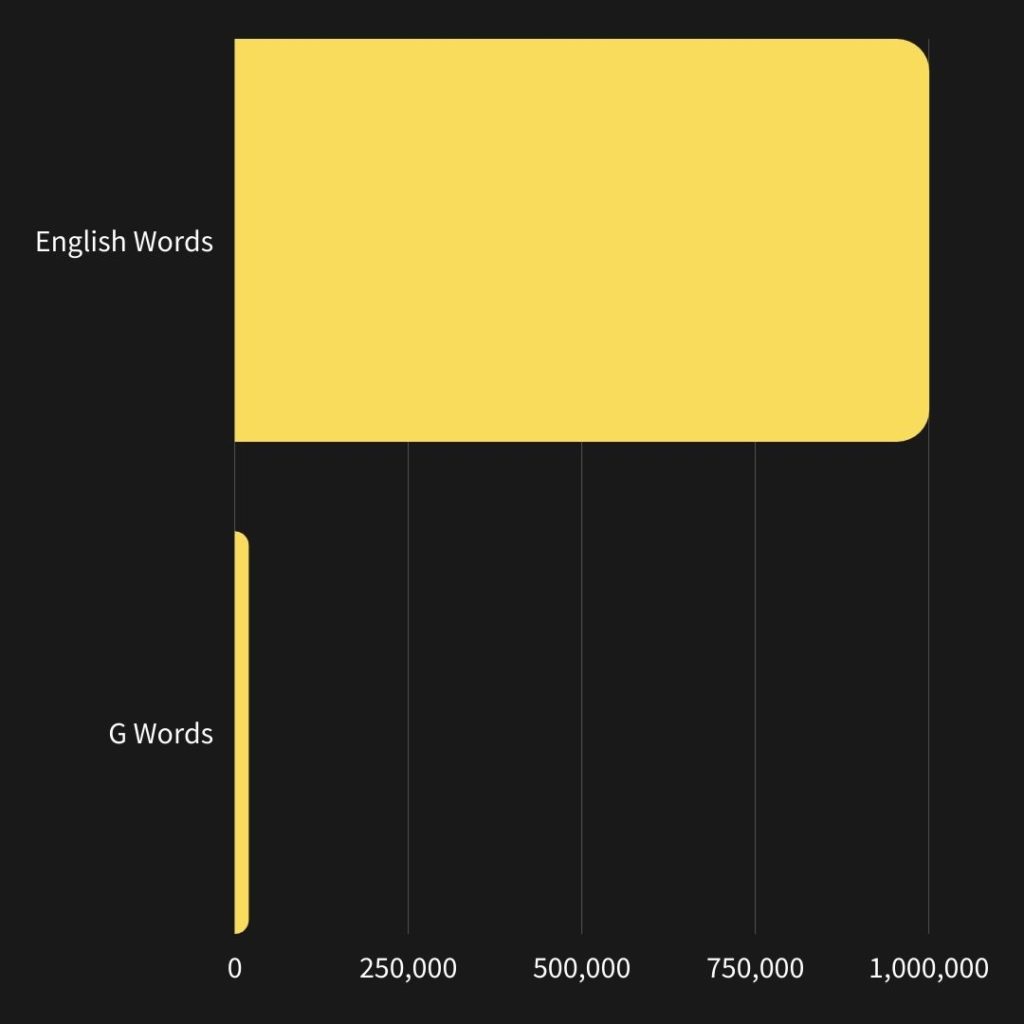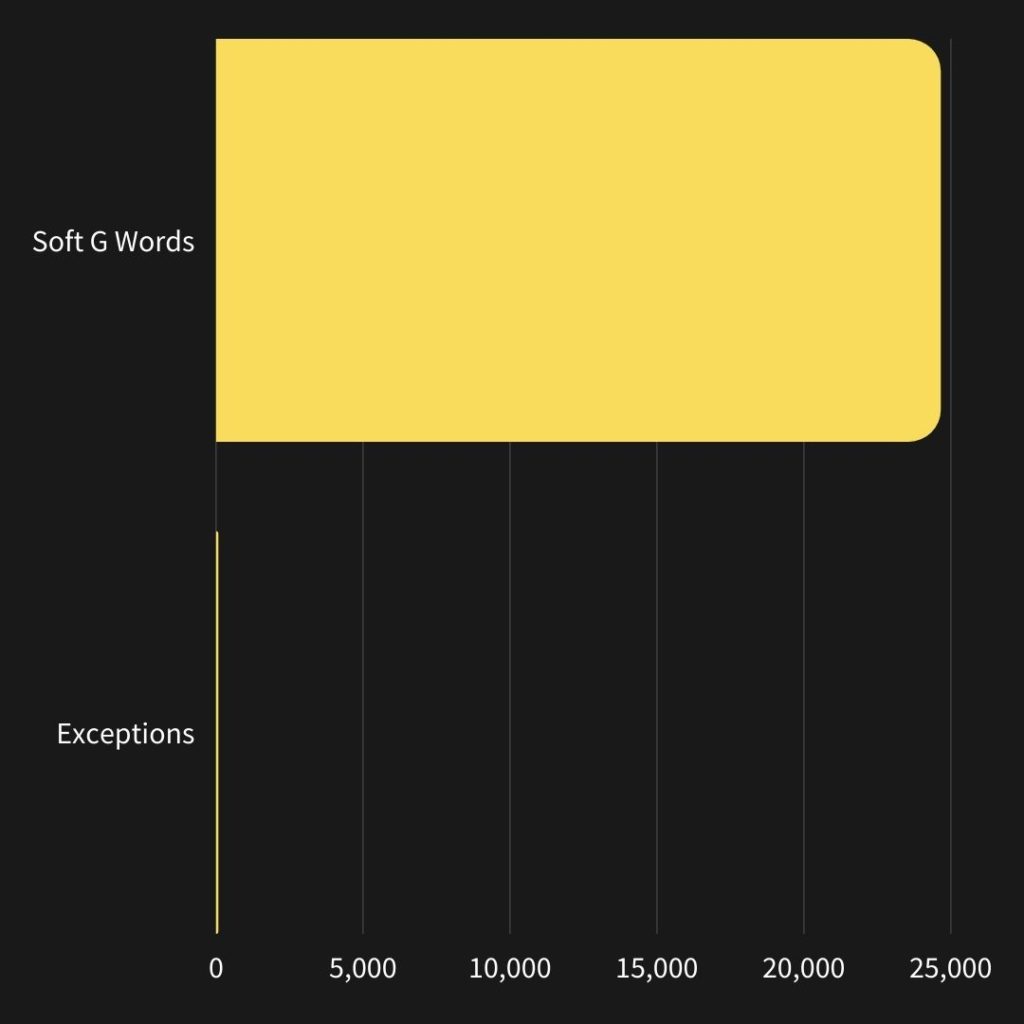The Internet’s Biggest Debate
How to Pronounce GIF (the right way)
Internet sleuths have debated how to pronounce GIF for decades. If you’re with the majority of internet goers, you probably side with the ‘hard g’ camp. There are but a humble few who actually know the truth…
The word GIF is pronounced with a soft ‘g’ like the peanut butter. 😱

Table of Contents
Preface
Understanding the usage of soft ‘g’ words
Argument #1
Pronouncing Acronyms
Argument #2
“It’s the same as the word gift”
Argument #3
Avoiding Verbal Confusion
Argument #4
The Creator Has the Final Word
Further Reading
Links to Related Articles and Sources

Before we begin
The Preface
Simply stated, the proper pronunciation of the acronym GIF is with a ‘soft g’ sound. As in, ”it is a gigantic waste of your time to try and debate me on this, because I’ve worked out all the angles.”
The most common arguments for the ‘hard g’ pronunciation are listed below. But first, some practice in remembering just how the English language works when it comes to the letter g.
Two types of ‘g words’
There’s the ‘hard g’ and the ‘soft g’
Soft G
- gene
- geology
- generic
- giant
- giraffe
- gym
- gyroscope
Hard G
- game
- gas
- gate
- goal
- gone
- gut
- gun
Notice a pattern? No? It’s hard, but it’s there…
Two types of vowels
The vowel determines which type of g sound is used.
Front Vowels (I, E, Y)
When placed before a Front Vowel, the ‘g’ is pronounced as a ‘soft g’ as in gin, gem, and gym.
Non-front Vowels (A, O, U)
When placed before a Non-front Vowel, the ‘g’ is pronounced as a ‘hard g’ as in game, goal, and gun.
Are there exceptions to this rule? Of course! But not many…
How many exceptions are there to the soft g rule?
Not nearly as many as you probably hope.

English Words vs. G Words
There are over 1,000,000 words in the English language. A little more than 24,000 of them start with the letter g.

Soft G Rule Exceptions
Of the 24,000 g words only about 61 of them are an exception to the ‘soft g’ rule.
So, yes… the rules of the English language seem to support a soft g GIF pronunciation. Moving on…
Argument #1
“It’s Graphics Interchange Format…” Is not a good argument.
Often the first objection people have to pronouncing GIF with a soft g is that the acronym stands for Graphic Interchange Format. And because Graphic is pronounced with a hard ‘g’ then so should the acronym using it.
NASA
National Aeronautics and Space Administration
If you used the words that make up the acronym it would be pronounced ‘neh-sa’ as opposed to the common pronunciation, ‘na-suh’.
IMAX
Image Maximum
If you used the words that make up the acronym it would be pronounced ‘ih-max’ rather than the commonly accepted pronunciation, ‘eye-max’.
JPEG
Joint Photographic Experts Group
If you used the words that make up the acronym it would be pronounced ‘jeg’ or ‘jfeg’ (because the ‘p’ in Photographic is silent) as opposed to the common pronunciation, ‘jay-peg’.
NATO
North Atlantic Treaty Organization
If you used the words that make up the acronym it would be pronounced ‘nat-o’ as opposed to the common pronunciation of ‘nay-toh’.
SCUBA
Self-Contained Underwater Breathing Apparatus
If you used the words that make up the acronym it would be pronounced ‘skuh-ba’ as opposed to common pronunciation, ‘skoo-buh’.
SWAT
Special Weapons And Tactics
If you used the words that make up the acronym it would be pronounced ‘swat’ (rhymes with cat) as opposed to common pronunciation ‘swawt’ (rhymes with not).
DARE
Drug Abuse Resistance Education
If you used the words that make up the acronym it would be pronounced ‘duhre’ as opposed to common pronunciation ‘dair’ (rhymes with care).
SIM
Subscriber Identification Module
If you used the words that make up the acronym it would be pronounced ‘sime’ (rhymes with time) rather than common pronunciation ‘sym’ (rhymes with Tim).
MAGA
Make America Great Again
If you used the words that make up the acronym it would be pronounced ‘muh-guh’ rather than common pronunciation ‘ma-guh’ (rhymes with ‘tag a’).
Surely nobody reading this would pronounce any of those acronyms according to how the words that make them up are pronounced. So let go of that argument. Time to move on.
Argument #2
“It’s just like the word gift,” is not a good argument.
Some people believe that because it looks like the word “gift” that it should be pronounced just like it. However, that rule doesn’t apply to other words where a letter is removed…
Think about Thought Though
The words thought and though are spelled exactly the same. Just remove the ‘t’ from thought and you have though.
Nobody will disagree that the pronunciation of the vowel part of the word changes from a ‘aw’ sound (‘thawt’) to an ‘o’ sound (‘tho’).
“But the g in GIF is a consonant, and consonants don’t change their sound.”
—@HardGforLife
For those not trained in phonetics, you may not notice there is a change of consonant sound when going from thought to though.

Let’s take a look at phonetic pronunciation
Using the Standard Phonetic Alphabet.
Thought – θóːt
The ‘th’ sound, represented by the θ symbol, is a “soft th” sound. It is the same sound used in words such as therapy, thorough, and three.
Though – ðə́w
The ‘th’ sound, represented by the ð symbol, is a “hard th” sound. It is the same sound used in words such as then, there, and they.
So it stands to say that it is normal for the first consonant in a word to change when creating a new word by removing a single letter.
Argument #3
There’s potential for confusion
Being considerate of others is cool.

“I sent you a gift, did you get it?”
Verbal communication can be hard when you’re using words that sound exactly alike.
Say this phrase out loud (with a hard ‘g’ sound):
“Did you get my gif?”
It’s easy for someone to think you said “gift” and misinterpret what you’re asking. But if you were to say it with a soft g there would be no question what you’re talking about.
For the Lip-Readers and Hearing Impaired
For those with hearing impairments and rely on reading lips for communication, pronouncing gif with a hard g will undoubtedly be misinterpreted.
Our mouths move the same way with the word “gift” since the final ‘t’ sound in the word is made with our tongue behind our teeth. So the former argument made is an inescapable reality when it comes to lip-reading.

Argument #4
The guy who created it said so. The end.
Look, if you created something you get to name it. And you get to have the last say in how it’s pronounced. Period.
My hypothetical daughter
Let’s pretend I had a daughter and named her Selah. When people first see her name they may pronounce it ‘sell-ah’. That would be incorrect. I would kindly correct them saying that it’s pronounced ‘say-lah’ and that would be the end of it.
They don’t argue with me on the pronunciation. And if they do, I just write them off as a self-absorbed, crazy, narcissistic weirdo.

“Choosy developers choose GIF.”
(pronounced with a soft g)
—Steve Wilhite, Creator of the GIF format (circa 1987)
[Source]
Further Reading
Not convinced? Holding on dearly to that pronunciation because it’s infinitely intertwined to your sense of identity? Here’s some other sources that also won’t convince you.
- Webby Awards
- TheoJoe (He mad 😂)
- CNN
- PC Magazine